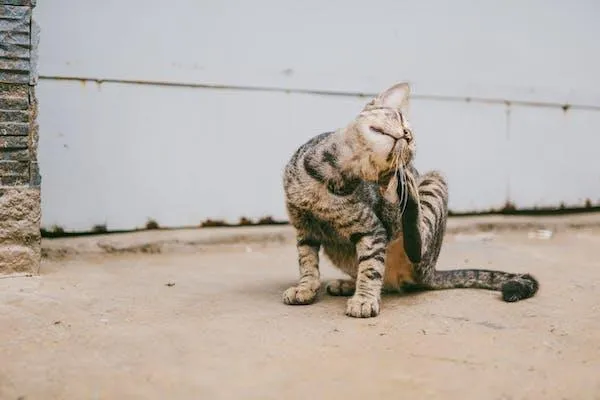

Flea Control
Cats and fleas have a complex relationship, and understanding it can help ensure the well-being of both cats and their human companions.
Here's a comprehensive overview of cats and fleas:
How Cats Get Fleas: Cats can get fleas through various means, including:
Contact with Infested Animals: Cats can pick up fleas from other infested animals, such as other cats, dogs, or wildlife.
Environment: Fleas can be present in your cat's living environment, like your home, garden or yard. They may jump onto your cat from carpeting, bedding, or outdoor areas.
Grooming: Cats may ingest fleas during self-grooming, and the fleas can multiply in their digestive tract.
Outdoor Exposure: Cats that spend time outdoors are more likely to encounter fleas, as they are often present in grassy areas or on other animals that have been in the same environment.
Harm to Cats: Fleas can cause various health issues in cats, including:
Itching and Discomfort: Flea bites can cause intense itching and discomfort for cats and humans alike.
Allergic Reactions: Some cats are allergic to flea saliva, leading to severe itching and skin problems.Anemia: In severe infestations, fleas can lead to anemia due to blood loss.
Transmission of Diseases: Fleas can transmit diseases, such as tapeworms, to cats.
How to Prevent Fleas: Preventing fleas is essential for your cat's well-being. Here are some prevention methods:
Regular Flea Control Products: Use flea control products like topical spot-on treatments, flea collars, oral medications, or flea sprays recommended by your veterinarian. Prevention is far easier than the cure!
Maintain a Clean Environment: Regularly clean your cat's living areas, including vacuuming carpets, washing bedding, and treating your home for fleas.
Regular Grooming: Brush your cat regularly to check for signs of fleas and keep their coat clean.
How to Treat Fleas: If your cat does get fleas, prompt treatment is essential. Fleas breed rapidly! Here's what you can do:
Medication: Your veterinarian can prescribe medications or recommend over-the-counter products to eliminate fleas on your cat.
Environmental Control: Treat your home and yard for fleas to prevent re-infestation. This is as vital as treating the cat.
Consult Your Veterinarian: If your cat's skin is irritated, or they exhibit other concerning symptoms, consult your vet for proper diagnosis and treatment.
Effects on Humans: Fleas can also affect humans. They may bite humans and cause itching and skin irritation. On a personal level, I am highly allergic to flea bites, and they cause major discomfort, so it's something that I prevent at all cost! Additionally, fleas can transmit diseases like typhus and cat scratch disease. However, the primary concern is your cat's health, as they are more susceptible to flea-related problems.
Habitat and Fleas: Fleas can infest various habitats, including homes, gardens yards, and wild environments. They especially thrive in warm and humid conditions, and their life cycle includes egg, larva, pupa, and adult stages. Regular cleaning, vacuuming, and using flea control products can help prevent fleas from establishing a habitat in your home.
Fleas are a common nuisance for cats and humans alike, but with proper prevention and treatment, you can keep your feline companion healthy and comfortable. Consult your veterinarian for guidance on the best flea control practices and products for your specific cat's needs.